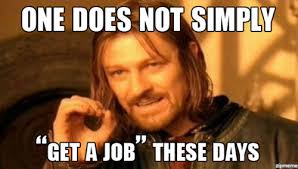January 15, 2009: The head dude in charge of the investment advisory firm where I worked herded us together into a conference room around 11 a.m. He dismissed about a third of the group, so those who remained could pack our cubes and leave our jobs behind.
When I got home, the news featured an airline pilot who successfully landed in the middle of the Hudson River, saving all those aboard. “Sully”, starring Tom Hanks and directed by Clint Eastwood, will be released after Labor Day.
Okay, I thought after listening to the evening news broadcast that night, perhaps I’m not having the worst day after all.
I picked myself up and found a way to make it through 18 months of unemployment for the first time since I graduated from college, well, a long time ago. I felt embarrassed to tell family members and friends that I “lost” my job, sad that a part of my self-identity was missing, confused because I wasn’t sure what I wanted to do next, and angry at the boss who told us at the holiday party that everything would be okay.
Soon I realized that I needed to get out of the house. I found something to do in the church office and then offered to help with a new job-networking group at church. Before long, I became the leader of the weekly group that brought together white-collar professionals, blue-collar workers, and marginalized unemployees. We shared snacks, resume tips, job leads, empathetic conversations, and brainstorms. I attended career search groups held in the west end of town and returned with success stories, career search tips, guest speakers, and online resources. Our little group even made the local weekly free newspaper.

In July 2011, I received a call from a Charlotte recruiter, who connected me with a hiring manager in Boston and a team leader in Trenton. I’ve been working from my remote home office ever since.
Based on my experiences leading a job-networking group during the recession, here’s what I know for certain about career searches:
- An objective at the top of the page says your resume hasn’t been updated since the ‘80s. Instead, you should bring your new wave CV into the digital age, and feature a concise but keyword-packed summary of skills and abilities that doesn’t give away your age.
- It’s okay to be unemployed, but it’s not okay to whine about it. Be ready with a 30-second “elevator speech” that explains your situation and your next career move while being true to yourself and relatively positive.
- Who you know might be your next boss. Spread the word about your situation so someone who knows someone you know can help you, but don’t spread dirt about your past. Plant the seeds of experience and a positive attitude, and flowers will bloom instead.
- Stamps – ‘memba them? My stepson was among a thousand applicants for one of 35 paid internships at the Federal Reserve the summer before his senior year in college. After the interview, he listened to his brilliant stepmom J and mailed a paper thank-you note to the hiring manager. Two weeks into his internship, Tony noticed his note on the manager’s desk.
- Attend career search meetings like weekly status project meetings. Most metro areas still hold career-search support groups, and the saints on Earth who run them have a finger on the pulse of the local economy.
- Give yourself the benefit of the doubt. The older you are, the longer it will likely take to find a suitable next career. Do what you can to take care of yourself and your family, and it’s okay to enjoy a respite. Take the kids or grandkids to low-cost museums and tourist spots.
When you recover from your job loss, you might find as I did that the time for some rest and self-reflection led to something even better. I’m now working for the biggest competitor of the company that laid me off in 2008. 🙂
(These opinions reflect only those of the author.)
